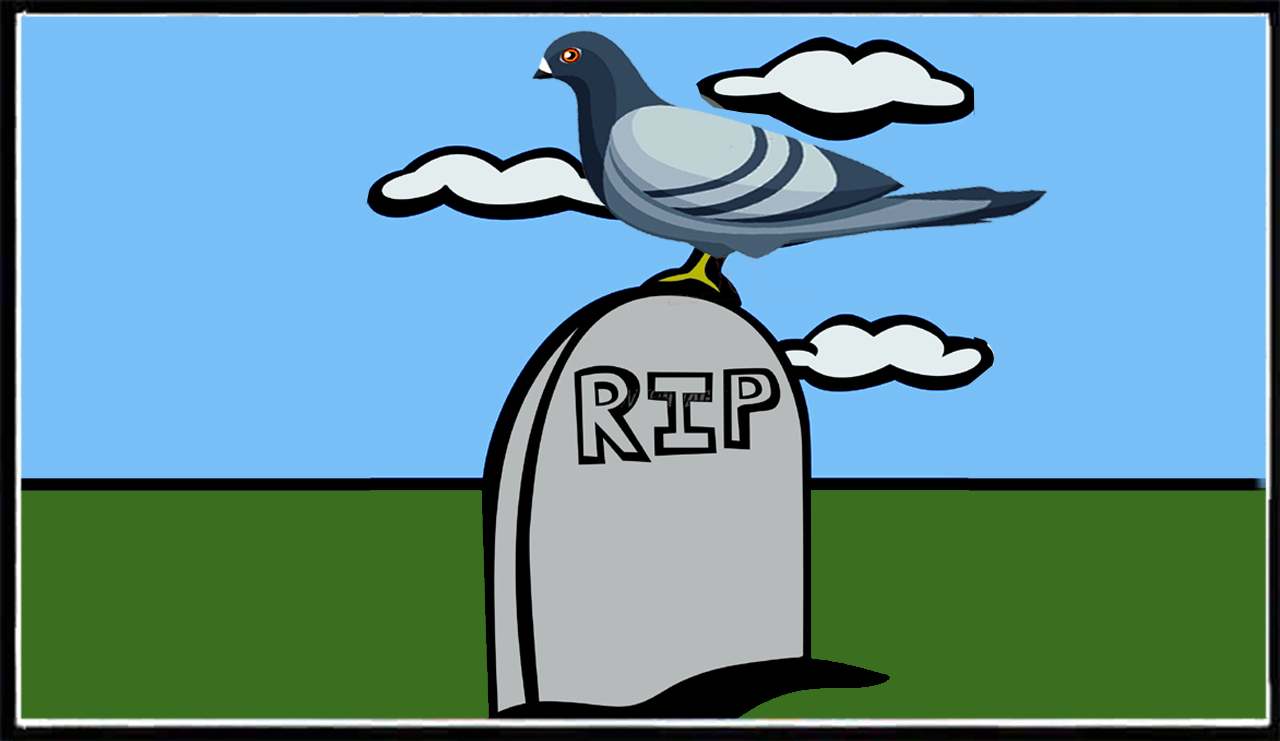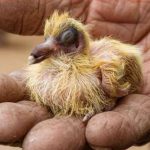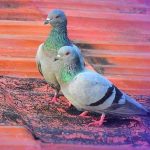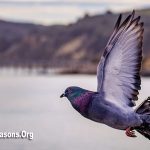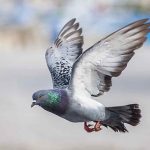With their stout bodies and adaptability to urban environments, pigeons have thrived alongside humans for thousands of years. But what are the longevity and life span characteristics of these resourceful birds? They can live surprisingly long lives of 15-30 years given adequate food, shelter, and protection from predators. However, the average lifespan of a feral pigeon is far shorter at just 1-5 years. Read on to learn more about the factors impacting how long it can live as pets or wild city dwellers.
Wild pigeons live 1–5 years on average, although some live 10 years. However, caged pigeons may live 20 years or more. With an average lifetime of 9 to 15 years and some exceeding 20 years.
Maximum Lifespan
Under ideal captive care, they have impressive lifespans:
- The longest confirmed lifespans are over 35 years.
- With excellent diet and healthcare, it can live over 30 years in captivity.
- Racing and show pigeons typically live 15-20 years with knowledgeable owners.
- Unreleasable feral pigeons adjust well to sanctuary care, living into their 20s.
- They naturally have high metabolisms and replace cells rapidly to maintain function.
- Hearty constitutions and resilience enable long lives despite their small size.
| Setting | Average Lifespan (in years) |
|---|---|
| Wild feral pigeon | 1-5 |
| Pet pigeon with good care | 15-25 |
| Elite racing pigeon | 10-15 |
| Pigeon in sanctuary | 15-20 |
| Record longevity in captivity | 30+ |
When protected from hazards and stress, properly cared for pigeons keep thriving well into their 20s and early 30s, outliving many pets.
Feral Pigeons’ Typical Lifespan
In the wild, it face far more challenges:
- Feral pigeons live just one to five years on average.
- Only about 15% of hatchlings survive beyond a year.
- Accidents, starvation, weather, vehicles, pollution, and predators all claim lives.
- Disease outbreaks spread rapidly in dense communal flocks.
- Exhaustion from excessive reproduction and rearing young reduces longevity.
- Chronic stress from deficiencies and discomfort accelerates decline.
The human-adapted environment provides plentiful food but also constant dangers that keep feral pigeon life expectancies low even with their hardy nature.
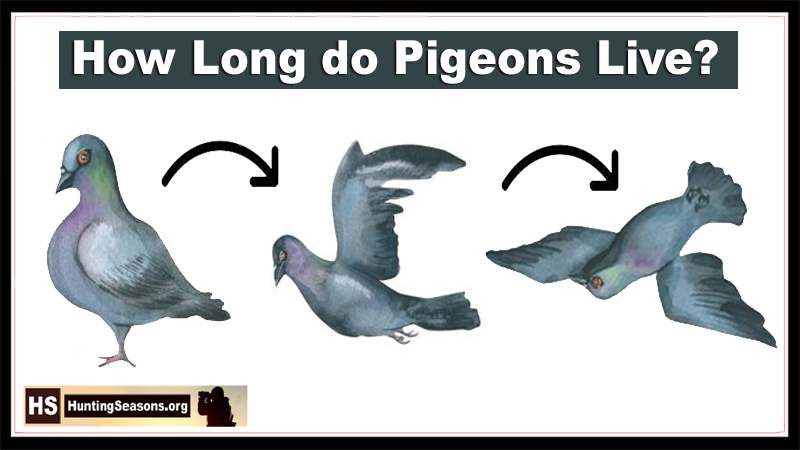
Factors Impacting Longevity
Several key factors influence how long a pigeon is likely to live:
Genetics
- Long-lived robust bloodlines endure. Weak constitutions die young.
Housing
- Outdoor pigeons exposed to the elements have shorter lives.
Diet
- Balanced nutrition supports health, while deficiencies cause illness.
Predation
- They live longer when protected from urban wildlife dangers.
Parasites
- Internal and external parasites drain resources and expose them to pathogens.
Human Interactions
- They fare better without toxicity and cruelty from people.
Disease
- Viruses, fungi, and bacteria rapidly spread in congested flocks.
Mitigating these hazards and stresses best allows them to attain their maximum life potential in any environment.
Signs of Aging in Pigeons
It exhibit increasing signs of old age and declining health as they reach advanced stage:
- Reduced flight ability and increasing clumsiness.
- Cloudy opaque eyes and poor vision.
- Weight loss and muscle thinning despite eating.
- Lackluster, fraying, and patchy plumage.
- Increased napping and reduced vocalizations.
- Shuffling gait and sagging stance.
- Sores, growths, and foot anomalies.
- Avoidance of flock social dynamics.
- Higher chick mortality rates for aging breeders.
| Age Milestone (in years) | Physical Changes |
|---|---|
| Middle age 5-8 | Minor slowing, some cloudy eyes |
| Senior 8-15 | Noticeable frailty and vision loss |
| Geriatric 15+ | Extreme slowing, non-viable offspring |
While they may show their age, they remain lively and interested in their surroundings even at advanced stages if given care and stimulation.
Caring for Elderly Pigeons
You can help support senior pigeons by:
- Providing soft padded perching spots to rest arthritic joints.
- Ensuring easy access to food and clean water.
- Maintaining consistent warmth and shelter.
- Checking for parasites and prompt treatment.
- Bathing to loosen dingy feathers.
- Examining for foot sores or deformities.
- Separating from aggressive flockmates.
- Monitoring for respiratory distress.
- Allowing rest breaks from broody hormones.
With some accommodations, they continue experiencing excellent quality of life well into old age thanks to their natural vigor.
Life Expectancy Summary
The impressive maximum lifespan potential for pigeons is 30+ years. But the pressures of the feral urban world cut average survival to just 1-5 years. Providing them with a sheltered, nourishing environment and protection from strife and disease allows them to thrive for decades and brighten lives with their lively antics and endearing companionship.
FAQ
What is the lifespan of a pigeon in the city?
Urban birds live just two to four years due to traffic dangers and predators. These urban pigeons have shorter lives than their woodland counterparts owing to sickness and predation. These birds encounter more threats in metropolitan areas due to human activity.
How long can pigeons survive in captivity?
A pet pigeon in captivity may live anywhere from 9 to 15 years on average, providing its owner with constant love and care. In contrast to their untamed counterparts, captive pigeons have the advantages of a steady food supply, defense against predators, and quick medical care when necessary. Pet pigeons live longer and are generally in better health when they are not faced with everyday obstacles related to food and safety.
How long do Wood Pigeons live?
With a 3-6 year lifetime on average, wood pigeons have greater death rates in the wild. Threats to their existence come from domestic cats, raptors, crows, and squirrels, among other natural predators. But their propensity for prolific reproduction—females can yield three broods annually—helps sustain their population. They have very short lives, yet they are excellent breeders in the wild.
Why do racing pigeons have such a long lifespan?
Renowned for their competitive activities, racing pigeons have been known to live up to 20 years. Regular physical activity, like as racing, is thought to have contributed to their longer longevity since it offers both mental and physical stimulation. These birds, who are kept by seasoned pigeon keepers, show tenacity and resilience by rising to the trials of racing events.
How do pigeons stay safe?
Peregrine falcons and sparrow hawks are two predators that pose a danger to them in the wild. Their major means of self-defense is still flight, which enables them to outwit predators. To avoid direct confrontations, they may resort to non-confrontational escape techniques like flying to the skies. Their capacity to fly is an essential survival tactic against a variety of environmental hazards.
What causes pigeons to die suddenly?
Diseases like canker and coccidiosis, which are communicative and can strike the whole flock, may kill them. A protozoan that affects the digestive tract may induce coccidiosis, which can be fatal or cause severe disease. Canker, which is mostly fatal to young birds, causes weight loss and lethargic behavior. It is spread via tainted food and water. Ensuring the well-being of pigeons requires regular health checks, quarantine periods for newly acquired birds, and aggressive illness prevention.
How to extend the life of a pet pigeon?
Giving a pet pigeon a healthy food, frequent exercise, and plenty of human connection are all important for their wellbeing. Their health is influenced by fresh vegetables, high-quality bird food, and a clean living space. Their quality of life is improved when their needs—such as having access to clean water and an appropriate habitat—are met. A pet pigeon’s lifetime may be significantly increased by responsible pet keeping, which includes providing it with appropriate nourishment and timely medical treatment.
Sources:
The Royal Society for the Protection of Birds
The Human Society of the United States
- 2025 Connecticut Hunting: New Season Dates, Licenses & More! - May 15, 2025
- 2025 Arkansas Hunting Season New Dates & Rules - May 14, 2025
- 2025 Texas Hunting Season: Latest Dates & New Laws! - March 14, 2025
